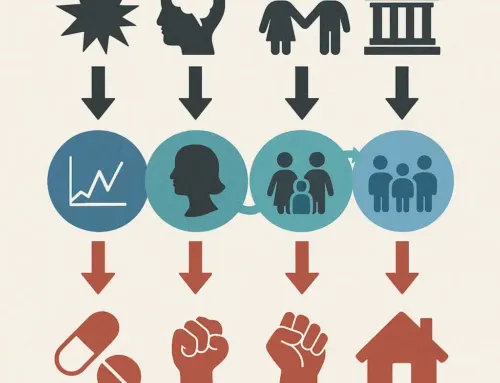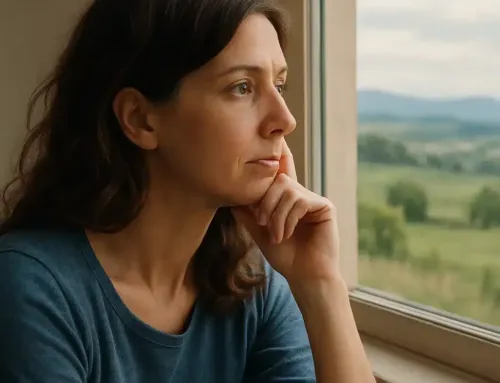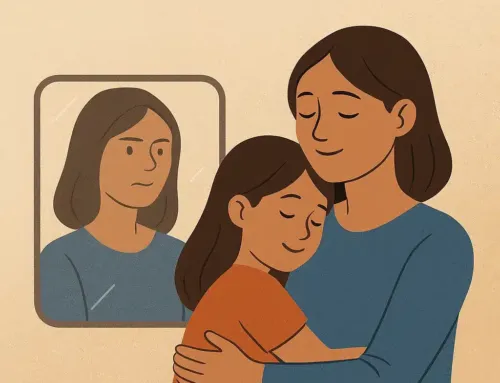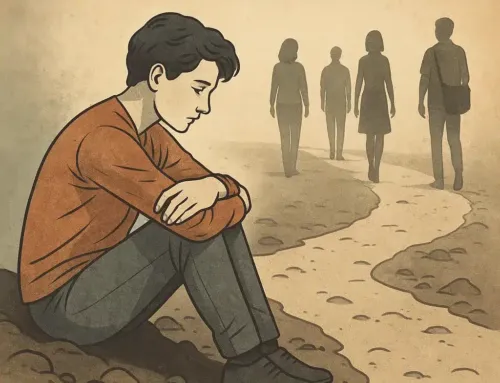
Approx. read time: 7.1 min.
Post: The Deep Connection Between the Human Body, Mind, and Death
Death is a universal experience, affecting all human beings at some point in life. While it is primarily a biological process, death also touches the mind in profound ways. Humans are unique in their awareness of mortality, and this shapes how we approach life, death, and everything in between. The relationship between the body and the mind when facing death reveals the complexity of our existence, blending physical, emotional, and psychological responses.
In this article, we will explore the connection between the human body and mind during the process of dying. We will look at how the body physically prepares for death, the psychological responses to the knowledge of death, and the cultural practices that help us cope with the end of life. Each of these components demonstrates the intricate bond between the body and mind in the context of death.
The Physical Process of Dying
When death approaches, the body undergoes several physical changes. These changes can begin weeks or even months before death. The body starts to conserve energy and prepares for its final cessation of functions. This process can manifest in various ways.
- Metabolic Decline: As the body prepares for death, it requires less energy. This results in a loss of appetite and thirst. The digestive system slows, and the body withdraws from physical needs. Over time, the person may stop eating and drinking altogether.
- Changes in Breathing: One of the most recognizable signs of impending death is a change in breathing patterns. Breathing may become shallow or irregular. A common phenomenon is Cheyne-Stokes breathing, where a person alternates between deep, rapid breaths and periods of no breathing at all.
- Circulatory and Cardiovascular Decline: Blood flow decreases as the heart weakens. This often results in coldness and discoloration in the extremities. The heart rate slows, signaling the body’s shutdown.
- Mental Confusion: Cognitive decline may also occur. A person might experience moments of confusion, disorientation, or even hallucinations. These episodes are typically caused by reduced oxygen flow to the brain as bodily systems shut down.
This phase, known as active dying, can last from hours to days. The body’s systems slow down and eventually stop. Breathing becomes more sporadic until it finally ceases. The heart stops beating, and brain activity fades away. These physical processes are the body’s natural way of transitioning to death.
Psychological Responses to Mortality
The mind’s reaction to death is equally important. Humans are conscious of their mortality, which leads to a range of psychological responses. How a person deals with the idea of death varies greatly. Some may deny it, while others accept it and find peace.
- Denial and Repression: For many, the idea of death is too overwhelming to confront. As a result, denial often takes hold. This defense mechanism allows individuals to go about their lives without being paralyzed by the fear of death. Denial manifests in various ways, such as ignoring the topic or avoiding conversations about mortality.
- Fear and Anxiety: Death anxiety, or fear of death, is common. The uncertainty of what comes after death creates deep psychological unease. Terror Management Theory suggests that much of human behavior is driven by this fear. People seek ways to buffer themselves from the reality of death by focusing on achievements or embracing religious or cultural beliefs that promise immortality.
- Existential Reflection: For some, awareness of death leads to existential reflection. These individuals may question the purpose and meaning of life. This reflection can prompt deep personal growth or a reorientation of priorities. Many turn to spirituality or philosophy to cope with the inevitability of death.
- Acceptance and Peace: Others eventually come to accept death. This acceptance often brings a sense of peace and can even inspire a more fulfilling life. These individuals may prepare mentally and emotionally for death, focusing on leaving a legacy or making amends with loved ones.
Psychological responses to death vary widely, but all highlight the mind’s deep engagement with mortality. People handle death in ways that reflect their personalities, cultures, and belief systems, shaping their unique experiences with the end of life.
The Mind-Body Connection in Dying
The link between the body and mind becomes especially evident during the dying process. The mind’s emotional and psychological state can directly impact the body, and vice versa. Emotional stress, for instance, can trigger physical symptoms, while physical decline can influence a person’s mental state.
- The Impact of Fear on the Body: Fear of death can lead to increased stress levels. This stress manifests physically in various ways, including elevated heart rates, high blood pressure, and physical pain. The emotional distress caused by death anxiety can amplify physical suffering during the dying process.
- The Role of Acceptance in Easing Physical Pain: In contrast, those who accept death often experience less physical pain. Studies have shown that meditation, mindfulness, and spiritual practices can help reduce physical symptoms of stress. When a person accepts the end of life, their body often responds with a decrease in physical tension.
- Placebo Effect in End-of-Life Care: The placebo effect also plays a role in the mind-body connection during death. When patients believe they are receiving comfort and care, their mental state often improves, which leads to physical relief. Even without a direct cause, the mind’s belief in care can ease physical pain and suffering.
- Grief’s Physical Manifestations: After a loved one dies, grief can take a physical toll on the bereaved. Fatigue, muscle pain, headaches, and weakened immunity are common symptoms of grief. This demonstrates how emotional pain directly impacts the body.
The mind and body are interconnected, especially in death. Psychological stress and emotional states can significantly affect physical well-being during the dying process. By addressing both body and mind, we can ease the transition and make death a more peaceful experience.
Cultural and Spiritual Interpretations of Death
Cultural and spiritual beliefs play a crucial role in how individuals and societies approach death. These beliefs shape both the physical and psychological preparations for death and inform how people handle the loss of a loved one.
- Eastern Philosophies: Many Eastern traditions, such as Buddhism and Hinduism, view death as a transition rather than an end. These belief systems emphasize reincarnation, where the soul is reborn in a new form. Meditation and mindfulness practices help individuals prepare for death, aiming for a peaceful passage.
- Western Views: In Western societies, death has traditionally been seen as the final end. However, modern healthcare has shifted focus toward making death more comfortable. Palliative care and hospice programs treat both physical and emotional suffering, highlighting the need to address the mind-body connection in end-of-life care.
- Indigenous Beliefs: Many indigenous cultures view death as part of the natural cycle. For instance, some Native American traditions consider death a return to the earth. Rituals often guide the deceased’s spirit to the next life, connecting body, mind, and spirit in the death process.
- Modern Spiritual Practices: Contemporary spirituality has increasingly embraced practices that help individuals prepare for death. Yoga, meditation, and mindfulness are often used to reduce fear and bring peace of mind. These practices focus on the holistic experience, recognizing death as both a physical and spiritual journey.
Cultural and spiritual beliefs about death influence how individuals and communities handle the end of life. Whether through rituals, spiritual practices, or modern healthcare, these beliefs help ease the physical and emotional aspects of dying.
Conclusion
The deep connection between the body, mind, and death reveals the complexity of the human experience. Death is not merely a biological process, but a psychological and emotional one as well. The body and mind work in tandem as individuals approach death, with emotional states influencing physical symptoms and vice versa.
Through cultural beliefs, spiritual practices, and modern medicine, humans have found ways to cope with death that honor both body and mind. By understanding this connection, we can help make the process of dying a more peaceful and meaningful experience. The awareness of death shapes not only how we die, but also how we live, reminding us of the intricate link between our physical and mental worlds.









